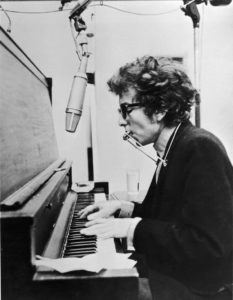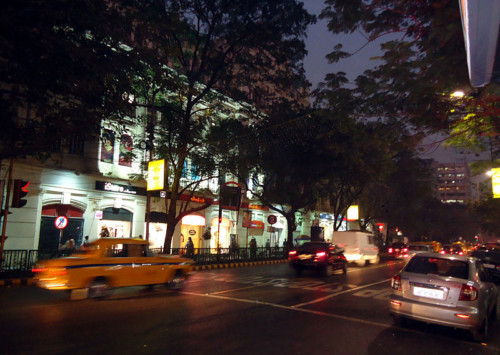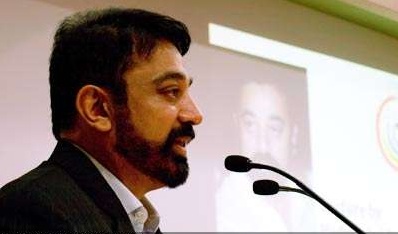Diamonds and rust for India’s Hippie Hill pilgrim Bob Dylan
Bob Dylan has, through the course of his life, found himself at the receiving end of purists’ scrutiny. His choice of few, simple and overwhelming words has, however, found an indispensable place in the timeline of social discussions across the world, and notably in India, a country he visited once as a Hippie Hill pilgrim, owing to the Nobel Prize in Literature that has now been bestowed on him, like never before.
As the Nobel Prize becomes a subject of grievous conflicting discourses in ‘a literary vault above the Stockholm Stock Exchange’ as journalist and writer Michael Specter states, 2016’s Nobel Prize of Literature was awarded to 75-year old Robert Allen Zimmerman aka Bob Dylan, making the folk-pop-country-blues singer and song-writer the first musician to receive the award in its history spanning 115 years.
Often quoted lovingly by scientists as his lyrics are paraphrased and cited in numerous biomedical research papers, Bob Dylan has found a place in educational curriculum in Universities in India. The Literature and Other Arts course taught in the Department of English of Jadavpur University, Kolkata, has Mr Tambourine Man as a part of popular culture.
A 1997 paper at Sweden’s Karolinska Institute in Stockholm, reportedly, was titled “Nitric Oxide and Inflammation: The answer is blowing in the wind.” Simple and profound, Bob Dylan’s arrival in the world as a voice of protest whose words could be counted on by all came at a time when there were upheavals like the Vietnam war and the Bangladesh liberation. When George Harrison was leading Beatles into the realm of folk rock, Bob Dylan was one of his major influences that culminated into the use of Indian classical as he gifted the world with ‘Norwegian Wood’ with his use of the sitar.
It is interesting to note that the Crank’s Ridge, often called the ‘Hippie Hill’, which is located on the way to the Kasar Devi temple above a town called Almora in the northern Indian state of Uttarakhand, became a popular spot for bohemian artists, writers and spirituality-seekers in the 1920s and 1930s. In the 1960s and 1970s, Bob Dylan and Cat Stevens made the ridge a pilgrimage spot to have the inhabitants impart their learning to them, as did Beat poet Allen Ginsberg.
Dylan’s spiritual journey through life has been a heavily discussed and disputed one often earning him the title of ‘The Restless Pilgrim’. As his gospel music was not spared from being a subject of both criticism and admiration, it leaves one seeking answers in the words he penned in his song Hurricane, in 1976:
“How can the life of such a man/ Be in the palm of some fool’s hand?/ To see him obviously framed/ Couldn’t help but make me feel ashamed/ To live in a land/ Where justice is a game”
Song:Gotta serve somebody
(my favorite lyrics by #BobDylan.)We are trapped
in the image
we create
in the mind of others#poem #poetry pic.twitter.com/RQ9W79ZWMu— Satya Shy Baba (@POETICandFUNNY) October 14, 2016
Congratulations Bob Dylan for winning a well deserved Nobel Prize for Literature. Your music & lyrics have truly been source of inspiration!
— Hard Rock Cafe India (@HRCIndia) October 13, 2016
1971 :: Bob Dylan And George Harrison Playing In Concert For Bangladesh . The Money From Concert Went To Refugees of East Pakistan pic.twitter.com/10NVxltayb
— indianhistorypics (@IndiaHistorypic) October 13, 2016
Very cool my #TheWhiteTiger producer (a composer) did a radio show for Bob Dylan’s 75th birthday today in India. pic.twitter.com/omuxImcMLE
— Jon Boyer (@jonboyer) May 24, 2016
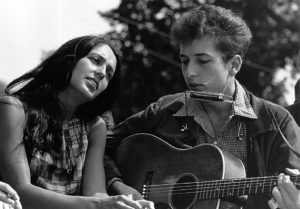
Writing on Facebook, Baez said: “The Nobel Prize for Literature is yet another step towards immortality for Bob Dylan. Out of my repertoire spanning 60 years, no songs have been more moving and worthy in their depth, darkness, fury, mystery, beauty and humour than Bob’s.”
“For having created new poetic expressions within the great American song tradition” is seemingly not reason enough for purists to be satisfied with this year’s Nobel Prize choice, dismissing and disqualifying Dylan’s lyrics from being called literature and using the discourse to add to the criticism against the Nobel Prize, as ironic as it appears.
Dylan is not the first literature Nobel Prize recipient to have been confronted with some element of controversy. Interestingly, Chilean poet Pablo Neruda’s reception of the prize in 1971 was preceded by a decade-long debate until “for a poetry that with the action of an elemental force brings alive a continent’s destiny and dreams” made him worthy of the prize. While stalwarts of literature like Yeats, Faulkner and Beckett have been recipients of the prize, it cannot be ignored that the likes of Joyce, Nabokov, Ibsen and Mark Twain never made it to the list. In terms of political stances becoming a talking point, Orhan Pamuk, winner of the award in 2006, found himself in the middle of a storm, and Jean-Paul Sartre, had once refused the award, on principle, for not wanting to be ‘institutionalised’.
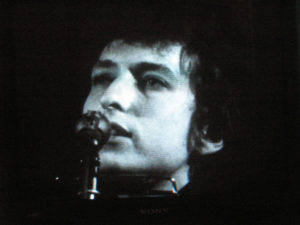
Writer Sir Salman Rushdie said, “Dylan is the brilliant inheritor of the bardic tradition. Great choice.”
Similarly, late Dario Fo winning the prize in 1997 was frowned upon because he was known more for being an actor than a playwright, while both Salman Rushdie and Arthur Miller were rejected on the grounds of being ‘too predictable and too popular’. In fact, when the Academy did not show support to Salman Rushdie after a fatwa was issued on him, popularly known as The Satanic Verses controversy, two academy members resigned instantaneously. It is well known that when the Swedish Academy makes the decision, it cannot subsequently revoke it, and fans of Bob Dylan have winning rebuttals ready to counter the criticism that he is being subjected to by way of every day social media moot-courts.
Since 1972 Lou Majaw Is Celebrating Bob Dylan Music In Shillong pic.twitter.com/StKWZVBNes
— indianhistorypics (@IndiaHistorypic) October 13, 2016

